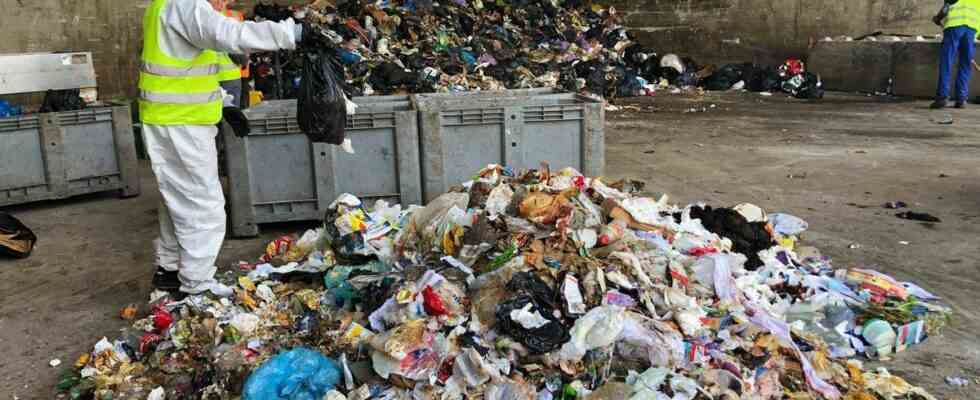In the shelter of a shed, they wait for the arrival of the first truck to take a sample and carry out a meticulous inspection. Their mission: to examine the inside of the garbage cans of the inhabitants of Rennes Métropole. The task may seem thankless, but it is essential for the community, which hopes to better understand what its inhabitants throw away. Each type of waste is sorted, classified and weighed. This “characterization” campaign should end in a few days. “What we want is to know how we can better support individuals by seeing what they throw away. Opening the bins also means getting to know the state of our society better,” explains Laurent Hamon. Show me what you throw, I’ll tell you who you are.
The elected ecologist can already be satisfied with the behavior of his constituents. In terms of selective sorting, Rennes and Brittany are already among the best French territories. The situation has even improved further since the metropolis implemented sorting processing 100% of packaging in 2017.
A solution that is easier to understand for users but which must prove itself and improve. Because inside the bins, there are still about sixty kilos of waste that should have been sorted: plastic bottles, cans and packaging. “We still have to speed up the sorting gesture. Today, almost everything is sortable and recoverable. More than 80% of what is collected in the yellow bins goes to recycling channels. It also has a financial interest for the community,” explains Laurent Hamon.
“We still find a lot of leftover food”
Each year, an inhabitant of Rennes Métropole throws away an average of 180 kg of household waste which is incinerated. The community has set itself a crazy goal and hopes to bring this figure down to just 36 kg in the next few years. By opening the garbage cans of its inhabitants, it understood where to press. “We still find a lot of leftover food that we could avoid. Especially in the garbage cans of collective housing. It is more difficult for residents to compost than in a pavilion,” explains Julien Monharoul, contract manager at Suez, who is leading the operation.
According to initial estimates, about 40 of the 180 kg of household waste in the metropolis would be food scraps. To try to see this figure drop, the community has already planned to equip all homes with a new bin to collect bio-waste. This bucket will be distributed from 2024 and will complement the many collective composters that will be installed. As for the collection of this bio-waste, it will be done in collective dumpsters which will themselves be removed by truck before being recovered. “What was on the ground, will return to the ground”, slips the vice-president of the metropolis. This will require convincing the most reluctant.

